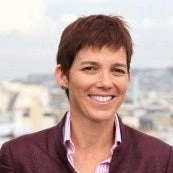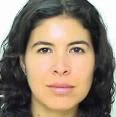También disponible en español

Imagine that one day you are forced to leave your home with only the clothes on your back. You have no house, land, supplies, work or friends. You cannot return. The only thing you have left is your will to survive and to protect your family. You arrive in a new city to start from scratch. Everything seems overwhelming. You realize you have lost in two ways: as a woman and now as a displaced person.
This is the experience of millions of displaced women in Colombia, such as the ones we met at the Foundation for Development and Progress (FUNDESPRO) in Bogota.The Foundation works with the government to aid victims, especially women, of the Colombian civil conflict, as part of a World Bank initiative supported through the Peace and Development Program.
Taking advantage of the launch of the World Development Report 2012: Gender Equality and Development in Colombia, we visited FUNDESPRO to see for ourselves the driving force behind the theory and practical conclusions of our report: women’s capacity for action and decision making, which is crucial for their human development. Here, some 30 mothers, most of them without partners, are building their future with the help of three sewing machines.
To earn an income, the women have joined forces to set up a shop where they make clothing that they sell in Madrugón –an early-morning market that caters to Bogota’s poorest citizens. Selling the clothes makes them just enough money to survive, according to one of the women.
But at the shop and at FUNDESPRO, which is part of a large network of displaced women’s organizations, they have found something more than just a job or a way to eke out a living. They meet other women in their situation, women who can support them, who can give them information, for example, on how to access state-funded resources they are entitled to as victims of Colombia’s civil conflict. Although most of the women initially go to FUNDESPRO to learn a trade, they frequently end up staying there.
Even though the shop does not have enough sewing machines and they must take turns using them, the women are aware of the power that working together gives them. Materials are less expensive because they can better negotiate with suppliers and they can produce more. They have learned how joining forces empowers them.
The World Development Report 2012: Gender Equality and Development highlights the importance of women’s capacity for action and decision making, both at the individual and collective levels.
At the individual level, women’s capacity for action has an impact on their possibilities for developing their human capital, for taking advantage of economic opportunities and for improving the well-being of their children. The displaced women we met at FUNDESPRO exemplify how this capacity for individual action is expressed, even in the most difficult circumstances.
At the collective level, women’s capacity for action and decision making can have an even more transformative effect, both for themselves and for society. This is what makes women like Isabel Rocha and Aura Abril, our friends at FUNDESPRO, use their newfound collective voice to demand not only their individual rights but also those of the other displaced women in the country.
Aura is the director of the National Network of Female Victims of Forced Displacement; Isabel is a representative of FUNDESPRO, which is part of the network. Both participate on boards of national organizations of displaced women, raise awareness about their situation and demand more decisive government action to promote their rights.
They do not ask for much: only that their children be given the opportunity to study, because they are aware of the importance of education; that their land is returned to them, even when it is in the name of their husbands who died or abandoned them; and that their suffering is recognized and measures implemented so that other women do not have to experience what they have.
Let’s hope they’re heard. The World Development Report 2012: Gender Equality and Development is our small contribution to Isabel and Aura’s struggle to uphold the rights and roles of women of Colombia and the world. Let’s hope we’re heard.



Join the Conversation